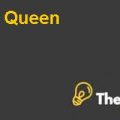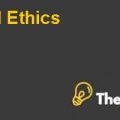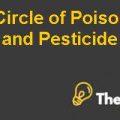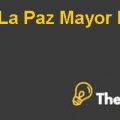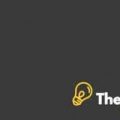
Introduction:
It has been a common perception that one can only be happy if a person can fulfills his or her needs and wants. Culture of our social circle is conquered with a concept that contentment, pleasure and happiness can only be achieved through the egotistical quest of self-satisfaction and one’s aspirations (farrelly, 2007). Along with this, it has been observed that our community is full of stress, unhappiness and despondencies. From the past few decades, a phenomenon has emerged from the branch of psychiatry by (Seligman, 2002) and the phenomenon is popularly known as positive psychology. The main focus of this phenomenon is based on the hunger for actual happiness. This phenomenon gives a prominence to this as an important part of human being’s life. Moreover, it has been seen that there is high relation between ethics with happiness i.e. both the terms are positively correlated with each other and is highly dependent upon each other.
On the other hand, conclusions from much research have shown that in the promotion, advertising and marketing world; it has been observed that ethics is an extraneous variable with respect to happiness and does not possess any relationship between each other. In a professional world, ethics is seen as one of the barriers to success and achievement because of its many legal and moral obligations towards organizations. Moreover, there has been an assumption that happiness and pleasure is a by-product of success. Despite all that, there is a strong connection and relationship found between ethics and happiness in individuals.
Many of the ancient Greek philosophers like Epictetus and Aristotle and other philosophers from China like Lao Tzu and Confucius has claimed that it is important to be ethical and morally right to achieve the flavor of true happiness. Virtue ethics is dependent upon the process of developing a character that focuses on maintaining and finding happiness in ethics. Recent drive on authentic happiness has been reinforced and augmented by many popular and famous personalities like Dalai Lama, who has attended so many conferences based on ethics and happiness. In addition to that, many books on ethics have been written by Dalai Lama as well. He gave arguments and said that there is a strong relationship and connection between ethics and happiness. Many of the common individuals believe that ethics is based on behaviors that is not selfish and is only based on always thinking about others first. This brings into line, the definition and basic concept of ethics derived by Albert Schweitzer. Despite that, Albert saw happiness from a different perspective and separated the concept of ethics from the concept of happiness and success (Rachels, 1999).
By the history and literature, ethics can be defined as a type of philosophy based on the nature of existence. Further, it is also based on epistemology that is dependent upon what a person can know and what are the sources of gaining that information. With the help of ethics, one can able to clarify values and to differentiate between what is right and what is wrong. It also helps in identifying how an individual can behave in certain situations and circumstances.
There is a debate regarding the difference between ethics and morality; these two often coincide with each other. Morals are something that is more accurate, complete and absolute while ethics is the rules that individuals make for their self and is based on either subjective or objective criteria. Additionally, it can be said that ethics is based on gaining good results that in turn creates happiness.
The Hunt for Happiness:
A framework to make the discussion on the topic of happiness is based on evaluating social sciences to evaluate society’s perception on the concept of happiness. The study has been published on the topic of our community’s obsession with tangible and material things by Australian author, Elizabeth Farelly. The article was based on the fact that with the growth in society, people’s demand for material thins and pleasures are increasing as well. Along with that, this demand leads to the epidemic of anxiety, stress and depression. From an organizational perspective, it can be seen and observed that thirst and hunt for happiness are increasing and that in turn is pushing people towards tension and stress in their lives (Schweitzer, 1987).
According to the author, she believed that the continuous hunger for happiness has become a threat for our society like a threat for depletion of natural resources and global warming. We have now assumed that every wish and desire by individual are right and one has every right to achieve it but still there is a high ratio of individuals, who are still not satisfied with their personal and professional lives.
Authentic and Reliable Happiness:
There is the difference between the two terms hedonics and happiness, defined by Martin Seligman (2002) as hedonics that can .....................
This is just a sample partial case solution. Please place the order on the website to order your own originally done case solution.


